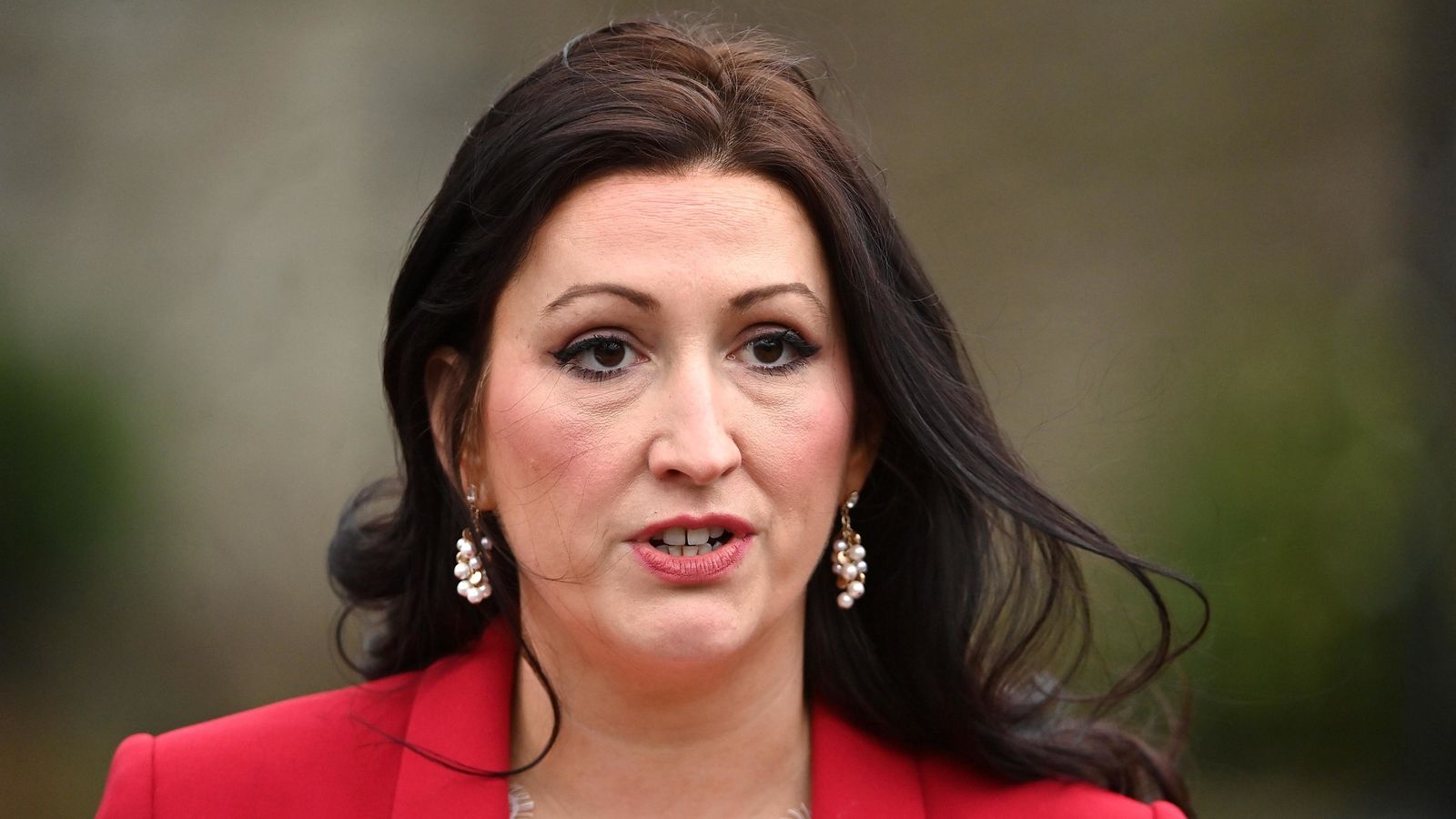Northern Ireland’s deputy first minister has said the UK government cannot expect Stormont to raise extra revenue while families are under huge financial pressure.
The Treasury is asking the new power-sharing executive to generate £113m in additional funding, as part of the £3.3bn package for restoring devolution.
But Emma Little-Pengelly, the first unionist to serve as deputy first minister, insists “this is not the time” and that stabilising politics must take priority.
“There are a huge number of very, very pressed, squeezed-income families here,” she said.
“There are a lot pressures. Cost of living crisis, inflation increases. We’re very conscious that those families are under huge financial pressure.
“And yet, the UK government is proposing to put additional pressure on the families that are going to pay this.
“This is not the time to put that additional pressure on. We need to get the Northern Ireland Assembly and executive stabilised.
“We want to tackle the big issues. We need to do reform. That will take time but at the moment, let’s think about the pressures that people are under,” she added.
‘Difference ought not to mean we can’t get on’
The nomination of the DUP’s Mrs Little-Pengelly as deputy first minister facilitated the historic election of Sinn Fein’s Michelle O’Neill as the first nationalist first minister.
Michelle O’Neill, the daughter of a former IRA prisoner, is now leading the power-sharing government, alongside Mrs Little-Pengelly, the daughter of a former loyalist prisoner.
Mrs Little-Pengelly told Sky News: “I’ve always said that I don’t believe the children of anybody should be blamed for the alleged actions of another.
“We have very different experiences in our lives, but that difference ought not to mean that we can’t get on well, can’t work constructively.
“And for my part, I’m absolutely determined to do so.”
Read more:
Michelle O’Neill attends police graduation
Irish unification referendum by 2030
Man charged with attempted murder of senior NI detective
She added: “I think the people of Northern Ireland demand of us to work together, demand of us to get that delivery and reform public services.
“In that space, there’s a huge amount that we can agree on and work constructively with, so I’m coming into this with a very, very positive attitude.
“I get on with and engage with people from across all different views and backgrounds.
“What we need is a professional, good, strong, constructive relationship and that’s what I will be pushing for.”





